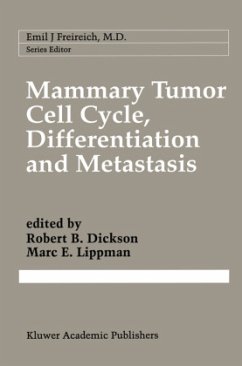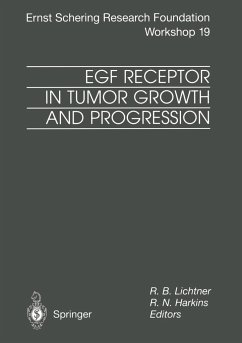
Breast Cancer: Biological and Clinical Progress
Proceedings of the Conference of the International Association for Breast Cancer Research, St. Vincent, Aosta Valley, Italy, May 26-29, 1991
Herausgegeben: Sapino, A.; Dogliotti, L.; Bussolati, G.

PAYBACK Punkte
58 °P sammeln!
The fight against breast cancer is expected to be effectively stimulated by interdisciplinary approaches and cross-fertilization between laboratory and clinical research findings. Of major importance are therefore meetings promoting fast transfer to clinical applications of findings by basic scientists. The present volume, reporting the proceedings of the 1991 Biennial Conference of the International Association for Breast Cancer Research, hopes to achieve this goal by presenting the most recent observations in the laboratory and their possible applications for diagnostic evaluations and clini...
The fight against breast cancer is expected to be effectively stimulated by interdisciplinary approaches and cross-fertilization between laboratory and clinical research findings. Of major importance are therefore meetings promoting fast transfer to clinical applications of findings by basic scientists. The present volume, reporting the proceedings of the 1991 Biennial Conference of the International Association for Breast Cancer Research, hopes to achieve this goal by presenting the most recent observations in the laboratory and their possible applications for diagnostic evaluations and clinical treatments. The sections of the book focus first on the oncogenes more likely involved in mammary tumorigenesis and on the polypeptide factors and steroid hormones affecting proliferation and possibly inducing carcinogenesis in breast epithelium. A section is devoted to the epidemiological studies and to the identification of risk factors, a way to select populations at higher risk and, possibly, to help in preventing the disease. Special emphasis is given to the establishment of diagnostic criteria and to the selection of prognostic factors, which must support an effective therapeutic planning. It is our hope that this volume, a timely update of the most recent advances in specific fields presented by basic scientists, pathologists and clinicians will stimulate new insights and progresses leading ultimately to the control of breast cancer.














